Who's next? An analysis of Thai royal succession dynamics
Thailand's next monarch could be a woman for the first time ever, but whoever it is, the power of the palace will be greatly diminished
A couple of weeks ago I shared my predictions for 2021 and beyond. In this post I will be looking at one specific aspect of Thailand’s future — who will be the next monarch after King Vajiralongkorn?
Four wives, two daughters, five sons and a consort
The reason there is so much uncertainty over who will succeed Vajiralongkorn is that he’s had such a tumultuous private life that there are several possible candidates. To analyse Thai royal succession dynamics, we have to start with a history of the king’s marriages.
Between 1972 and 1976, Vajiralongkorn studied at the Royal Military College at Duntroon in Australia. During his time there, he fell in love with Laksasubha Kridakara, the daughter of a diplomat at the Thai embassy. This caused major family rows, especially with Vajiralongkorn’s mother Queen Sirikit, who didn’t regard Laksasubha as a suitable bride.
Sirikit was determined to ensure that her branch of the royal family, the Kitiyakara clan, would become the dominant royal bloodline in future generations. She was insistent that Vajiralongkorn should marry his own cousin, Sirikit’s niece Soamsawali Kitiyakara. Arguments about the issue divided the palace during the turbulent year of 1976, when the royal family, terrified of being overthrown like the monarchies in Laos and Cambodia, sided with the military and far-right nationalists to destroy Thailand’s nascent democracy, leading to the massacre of student protesters at Thammasat University in October 6 that year.
Vajiralongkorn was brought back to Thailand a few days before the massacre. In December 1976, Thai newspapers announced his engagement to Soamsawali, and on April Fool’s Day 1977 they were married in Bangkok. He was 24 and she was 19.
In The King Never Smiles, Paul Handley explains the dynastic reasons why Sirikit demanded that Vajiralongkorn marry Soamsawali:
Somsawali represented not only the dynastic ambitions of the Kityakaras but also those of the Sanitwongs family of Sirikit’s mother, and a third prominent royal line at risk of marginalization, the heirs of King Chulalongkorn’s son Prince Yugala. Somsawali’s mother was M.R. Bhandhusawali Yugala, whose own mother was a Sanitwongs. For the three families’ dynastic aspirations, Somsawali was genealogically near perfect.
But there were several problems with the relationship from the start. Because the Thai monarchy is essentially a blood cult, in which people with a supposedly purer royal bloodline have higher status, there was significant inbreeding in the family over successive generations. Soamsawali was Vajiralongkorn’s cousin via Sirikit’s side of the family, and was more distantly related via Bhumibol too. As Handley says:
Genetically she was a potential disaster. In a dynasty deeply defined by endogamous marriage and mating, the king and the queen were closely related direct descendants of King Chulalongkorn. So Somsawali had much the same blood as the prince.
Also, Vajiralongkorn was never interested in Soamsawali, who he found plain, boring and clueless. He only married her to please his overbearing mother. After their wedding the couple toured Thailand to try to boost support for the monarchy after the horror of the massacre. But the marriage soon fell apart. The king gained a reputation for womanising and partying with gangsters and corrupt tycoons, and became besotted with aspiring actress Yuvathida “Benz” Polpraserth. During 1978, Soamsawali became pregnant, but soon afterwards Vajiralongkorn abandoned her to live with Yuvathida in a different palace.
Soamsawali gave birth to Vajiralongkorn’s first child on December 7, 1978. It was a daughter, Bajrakitiyabha — not ideal for the royals, who prefer sons. On August 29, 1979, a male heir, Juthavachara, was born — but the mother was Yuvathida. As Handley says:
For Queen Sirikit this was a disaster: the boy threatened her own family’s dynastic hopes, unless Soamsawali gave birth to a celestial prince.
There was little prospect of Soamsawali having any more children with Vajiralongkorn. He was living with Yuvathida, and over the next decade the couple had four more children — three more sons, and then a daughter.
Sirikit began publicly criticising her son’s behaviour to foreign media. At a press conference in Texas in 1981 she said:
My son the crown prince is a little bit of a Don Juan. He is a good student, a good boy, but women find him interesting and he finds women even more interesting… If the people of Thailand do not approve of the behaviour of my son, then he would either have to change his behaviour or resign from the royal family.
Bhumibol was also appalled by his son’s behaviour but struggled to control him. The branches of the royal family supporting Soamsawali began a campaign of anonymous leaflets denouncing Vajiralongkorn’s behaviour. This was mentioned in a CIA report from 1988, although US intelligence failed to realise the campaign was being waged not by anti-monarchists but by disgruntled factions within the royal family itself.
Bhumibol and Sirikit eventually agreed to allow their son to formally leave Soamsawali, and the divorce was finalised in 1993, leading to a more leaflets from the rival royal factions denouncing Vajiralongkorn and Yuvathida:
Don’t they realise that they cannot become king and queen without the respect and support of the Thai people? What can we do to prevent The Idiot and The Harlot from attaining such an exalted position?
Vajiralongkorn quietly married Yuvathida in February 1994, and the relationship was officially announced on his 42nd birthday on July 28 when he appeared in public with his new wife and their five children to make merit by releasing birds and fish.
But by now, Vajiralongkorn’s relationship with Yuvathida was under severe strain. He had always been a relentless womaniser, and expected her to accept this without complaint. It led to explosive rows, and the situation worsened after Vajiralongkorn became infatuated with a new concubine, Srirasmi Suwadee, a hostess at the Thonburi Cafe, who joined his harem in 1993, officially as a “lady in waiting”. After Vajiralongkorn moved Srirasmi into his palace, Yuvathida stormed out.
By 1996, Vajiralongkorn had decided to leave Yuvathida and make Srirasmi his main consort. Queen Sirikit saw this as an opportunity — if Yuvathida and her sons could be removed from the royal family then Soamsawali’s daughter Bajrakitiyabha would once again become the heir to the Chakri throne. Vajiralongkorn was told he had his parents’ blessing to leave Yuvathida but only if he banished their four sons too.
On May 13, 1996, Vajiralongkorn wrote to the headmistress of Hurst Lodge School in England, where his daughter Busyampetch (now known as Sirivannavari) was studying, to say he wanted to immediately bring her back to Thailand, supposedly for health reasons. He flew to London to collect her, but refused to see any of his sons who were also at boarding schools in England.
Vajiralongkorn and Busyampetch arrived back in Bangkok on May 26. Two days later, Vajiralongkorn formally exiled Yuvathida from Thailand. Leaflets were distributed in Bangkok and displayed on the walls of the palace claiming that Yuvathida had committed adultery with one of Vajiralongkorn’s aides and had mistreated Busyampetch. According to Handley, naked photographs of Yuvathida were also “sent by diskette to embassies and newspapers and posted on the Internet”.
It soon became clear that Vajiralongkorn had not only expelled Yuvathida, but also their sons. In January 1997 he wrote to the headmasters of their schools in England, saying the four boys had been stripped of their royal titles and diplomatic passports, but promising that he would still continue paying for their education. The letter below was sent to Nicholas Bomford, headmaster of Harrow, where his two eldest sons Juthavachara and Vacharaesorn were studying.
By February, Vajiralongkorn had decided that he was not even going to pay their school fees, as he explained in another letter to Bomford. Similar letters were sent to the headmasters of Pangbourne College, where Chakriwat was studying, and Vatchrawee’s school Sunningdale.
Harrow School ended up having to contact the Thai embassy to ask for payment of overdue fees. Eventually, Yuvathida paid £9,200 and then Vajiralongkorn sent the Thai embassy £10,141.04 to cover the rest.
Yuvathida settled in Florida with the four boys. In an open letter in February 1998, seeking to address gossip and tell their side of the story, the four sons said Vajiralongkorn had never treated Yuvathida as a wife, and routinely forced her out of the palace when he had a new favourite concubine. They reported that during his abduction of Busyampetch, Vajiralongkorn had told Yuvathida that “the boys … were not important to him at this point”. And they accused him — correctly, of “trying to erase us from the memories of all who knew us”.
The reason for Vajiralongkorn’s vindictive and neglectful behaviour was that in order to get Sirikit’s blessing to abandon Yuvathida, he also had to sacrifice his relationship with his sons.
For a while, it looked like Sirikit’s plan had succeeded. Bajrakitiyabha’s position as heir was restored, and it began to seem unlikely that Vajiralongkorn would ever have more children, because in the late 1990s he had a vasectomy and also was infected with HIV.
But Srirasmi wanted a child with him to secure her position, and Vajiralongkorn agreed. Using IVF and the “sperm washing” technique to prevent transmission of the virus, a child was conceived, and on April 29, 2005, Dipangkorn Rasmijoti was born. The Chakri dynasty had a male heir once again.
This led to another vicious bout of infighting among competing royal factions. To try to discredit Srirasmi, a video was leaked in 2007 showing her virtually naked at her 30th birthday party at Nonthaburi Palace in the presence of numerous courtiers as the crown prince contentedly puffed on his pipe. A confidential US cable noted that “the Crown Prince’s reputation continues to suffer and may have declined further, in part due to the dissemination online and by DVD of material harmful to the image of the Crown Prince and his Royal Consort”, and added: “some in palace circles are working actively to undercut whatever support exists for the Royal Consort, and we assume that this undercurrent also has implications for the Crown Prince”. In July, while Vajiralongkorn and Srirasmi were in Europe, very high-level sources spread misinformation that Vajiralongkorn had died of AIDS.
Meanwhile, Vajiralongkorn had already grown bored of Srirasmi. He had a new favourite — Thai Airways flight attendant Suthida Tidjai, who he met when she was among the cabin crew on a charity flight he piloted on January 5, 2007. Later in the year he moved to Germany to live in Munich with Suthida, only returning to Thailand for royal duties.
According to a secret US cable, Queen Sirikit finally gave up on supporting her son in 2007, after many years in which she had “actively promoted Crown Prince Vajiralongkorn's interests and was seen as his greatest backer in the face of widespread public opposition”. The cable said “the mother-son relationship suddenly changed in 2007” and that in March 2008 “the Queen and the Crown Prince had a shouting match at a hospital during the Queen's brief hospitalization, with the Crown Prince angrily berating her in front of ladies-in-waiting”. Sirikit was increasingly losing touch with reality, and believed that in a former life she had been the 16th century Ayutthayan queen Sri Suriyothai, who supposedly died heroically after she disguised herself as a man and rode into battle on an elephant to save the kingdom during the Burmese-Siamese War of 1548. Sirikit became determined to reign as regent after Bhumibol died, rather than allowing Vajiralongkorn to become king, and began recklessly intervening in politics in support of the royalist movement fighting Thaksin Shinawatra.
But in July 2012, Sirikit collapsed while walking in the grounds of Siriraj Hospital in Bangkok. She had suffered a massive stroke, and has been incapacitated ever since. The woman who had dominated Vajiralongkorn’s life more than any other, and who had obsessively plotted about royal succession and ensuring the primacy of her own bloodline, was no longer able to play any role in deciding the dynasty’s future.
By now, it had also become clear that something was seriously wrong with Dipangkorn. A US cable in 2007 mentioned “rumours of autism” and another leaked cable in 2009 said he “appears to suffer from both physical and mental developmental delay issues and reportedly has regular seizures”. Over the following years, the evidence grew that Dipangkorn has a condition that has significantly affected his development and cognitive abilities. It is most likely to be autism but this has never been confirmed.
In late 2014, with Bhumibol increasingly incapacitated too, Vajiralongkorn decided to divorce Srirasmi, who he had already abandoned years before. She was stripped of her royal titles, banished to house arrest in Ratchaburi, and most of her close relatives were jailed. But unlike Yuvathida’s four sons, Dipangkorn was not expelled from the royal family. He was removed from Srirasmi’s care and enrolled in a special school in Geretsried outside Munich.
After Vajiralongkorn became king following Bhumibol’s death in 2016, soldiers, police and officials in his inner circle began wearing badges showing Dipangkorn’s face. These badges are personally awarded by Vajiralongkorn to those he regards as most loyal to him, and this has been widely interpreted as a signal that Dipangkorn is the king’s chosen successor.
But there has been no official confirmation so far that Dipangkorn will indeed become Rama XI — or that anybody else is the favoured candidate. Vajiralongkorn has not declared his heir, and the question remains open.
The law doesn’t make things any clearer
Various laws and precedents govern Thai royal succession but the main rule is that there are no real rules. In his classic study Siamese State Ceremonies, published in 1931, the British scholar H.G. Quaritch Wales noted that although Thai royal succession was in theory governed by the palace law codified in Ayutthaya more than six centuries ago, in fact the rules were frequently just ignored, and violent struggles over succession were extremely common in Thai history.
The king has absolute power to declare whoever he wants as his designated successor, regardless of the palace law, because if the choice of heir is against the rules, the king can just change the palace law to ensure that it accords with his wishes.
In 1924, a year before his death, King Vajiravudh, Rama VI of Siam, published an amendment to the ancient rules governing royal succession. The 1924 Palace Law on Succession was mainly written by Vajiravudh out of spite to sabotage the hopes of his half-brother Prince Paribatra, who he hated, and to elevate the succession prospects of his full brothers. The amendment focused on rules for determining the line of succession in a situation where the king has multiple sons by several queens. Even though it’s widely expected that Vajiralongkorn will soon become the first monarch since Vajiravudh to have more than one queen, the 1924 law is not particularly relevant for providing clarity on who will be his successor, but a couple of points are worth noting.
First, the law made clear that the monarch can name any eligible candidate he wants as his successor — the new rules only applied if the king died without having designated an heir. Secondly, and more significantly, it said only males can become monarch of Thailand. Article 13 of the 1924 law states:
For the moment, it is still not appropriate for a woman to accede to the throne as a sovereign queen.
In theory, royal succession is also governed by the Thai constitution. In practise, Vajiralongkorn has already made it clear that he does not recognise the legitimacy of the 1932 revolution that began the era of constitutional monarchy, and has shown that he can break the law with impunity and demand whatever constitutional changes he wants. He intervened to secure several changes to the 2017 constitution, but left the provisions on royal succession intact. So the constitution is unlikely to be an obstacle to whatever plans Vajiralongkorn has for royal succession. But there are some interesting developments buried in Thai constitutional history.
Thai constitutions have always stipulated that royal succession should be in accordance with the palace law. If the king has appointed an heir during his lifetime, then they will become monarch after his death, and the National Assembly is required to convene to acknowledge the succession and proclaim the new monarch. If the king dies without formally naming a successor, then the Privy Council — a group of ancient male royalists who supposedly advise the monarchy — has to submit the name of the most eligible candidate to the National Assembly.
In 1974, a curious change was made to Thai constitutions, and it’s been there ever since. It states that if there is no male heir, and the Privy Council is asked to propose the next monarch, “the name of a Princess may be submitted”.
This would appear to contradict the palace law, which decrees that a woman cannot be monarch. But the palace law can be changed any time by the reigning monarch, and even if he doesn’t change the law and dies without naming an heir, the president of the Privy Council — currently Surayud Chulalont — becomes regent and has the power to change the law himself to appoint a female monarch.
The 1974 change in the constitution to allow for a female monarch was requested by the palace. During the era of Thai royal monogamy, it was sensible for the Chakri monarchy to follow most other royal families around the world to allow female succession, because otherwise there was a risk of the dynasty ending if a king had no sons, only daughters.
Bhumibol may also have pushed for the change in the constitution as part of his efforts to discipline Vajiralongkorn by threatening him with the prospect that one of his sisters could become monarch instead if he didn’t improve his behaviour. This was also the likely reason for the elevation of Vajiralongkorn’s younger sister Sirindhorn to the position of Crown Princess in 1977. It didn’t work. Throughout his life, Bhumibol was never able to understand or control his only son.
Overall, all that Thai palace and constitutional law shows us is that the question of who will be the next monarch is wide open. It could be a man or — for the first time in Thai history — a woman. Anything is possible.
Who are the candidates?
Vajiralongkorn has seven children that we know of. Given his decades of womanising, it’s quite strange that he doesn’t have more, but we know from his long struggle to conceive with Srirasmi that his health issues are a significant obstacle to having more children.
The seven we know about are:
Bajrakitiyabha, born December 7, 1978, to Soamsawali.
Juthavachara, born August 29, 1979, to Yuvathida.
Vacharaesorn, born May 27, 1981, to Yuvathida.
Chakriwat, born February 26, 1983, to Yuvathida.
Vatchrawee, born June 14, 1985, to Yuvathida.
Busyampetch aka Sirivannavari, born January 8, 1987, to Yuvathida.
Dipangkorn, born April 29, 2005, to Srirasmi.
Frequently in Thai history, a brother of the monarch often took the throne rather than a son, but Vajiralongkorn has no brothers. His three sisters are:
Ubolratana, born April 5, 1951.
Sirindhorn, born April 2, 1955.
Chulabhorn, born July 4, 1957.
Of these three, only Sirindhorn has any realistic chance of playing any role in deciding how royal succession will unfold.
As things stand at the moment, the two most likely candidates to be Thailand’s next monarch are Dipangkorn and Bajrakitiyabha. But there are other possible scenarios.
The heir apparent
If Thai royal succession follows established practices, Dipangkorn will be the next king. He is the only male heir of Vajiralongkorn not banished from the royal family. This is why he is considered the heir apparent of the Chakri throne. But there are three important reasons to be doubtful that Dipangkorn will ever be king.
First of all, and most importantly, he clearly has a significant developmental issue, either autism or a related condition. He is now 15 years old, and although he has been often featured on daily royal news broadcasts, he’s never been shown saying a coherent sentence. He attends a school in Germany for children with developmental problems. Unlike Vajiralongkorn’s other official offspring Bajrakitiyabha and Sirivannavari, who have been showered with praise for their alleged genius by the palace propaganda machine since they were children, despite showing little talent in any field, there is not even any attempt to claim that Dipangkorn has any special skills at all.
Secondly, Dipangkorn’s mother Srirasmi was humiliated and denounced by Vajiralongkorn, stripped of her royal titles and banished into house arrest. Her parents, her three brothers, a sister, her uncle Pongpat Chayapan who had been chief of the Central Investigation Bureau of the Thai police, and several other relatives were all jailed on the orders of Vajiralongkorn. This would make things extremely awkward if Dipangkorn ever became king — what would be done about Srirasmi?
Thirdly, given his condition, it’s not clear that Dipangkorn will ever marry and have children, so if he becomes king this could lead to a dynastic dead end. Who would be monarch after Dipangkorn, if he dies childless?
But the possibility of Dipangkorn becoming Rama XI can’t be ruled out. Even if he doesn’t have the capacity to perform the full range of royal duties, a pliant and obedient monarch could be very useful to the military and the royalist elite. Bhumibol achieved extraordinary popularity despite being a weak-willed and often clinically depressed king who spoke in indecipherable riddles and was manipulated by those around him. He seemed kind and caring and many Thais loved him for that. It’s possible that the regime could try to use Dipangkorn as a docile puppet too.
It’s also not inconceivable that Srirasmi could be rehabilitated as a royal figure if she’s still alive when the king dies. Vajiralongkorn’s consort Sineenat “Koi” Wongvajirapakdi was stripped of her titles and flung into jail in 2019, only to be forgiven and pardoned last year, and she is now being promoted as his current favourite partner. After what has happened to Koi, it no longer seems so inconceivable that Dipangkorn could become king despite having a formerly disgraced mother.
The first female monarch?
If she was a man, or if her grandmother Sirikit still had any influence over events, there would be no doubt that Princess Bajrakitiyabha would be first in line to be the next Thai monarch.
She has the most impeccable lineage of all Vajiralongkorn’s children, because her mother was royal, unlike all the others who were born to commoners with the kind of background reviled by the elite.
After it became clear that Vajiralongkorn would not produce a male heir with Soamsawali, Sirikit fought hard to try to ensure Bajrakitiyabha would succeed Vajiralongkorn, including by demanding the banishment of Yuvathida’s four sons. Because of her bloodline, Bajrakitiyabha’s claim to the throne is also supported by the Yugala and Sanitwongs clans as well as the Kitiyakaras.
The palace groomed Bajrakitiyabha to be the next monarch, sending her to get law degrees at Cornell University, and then installing her in the Office of the Attorney General, first in Bangkok and then in Udon Thani. She was also promoted as a prison reform activist fighting for the rights of women in jail, and according to palace propaganda she was instrumental in getting the United Nations to agree the so-called “Bangkok rules” on humane treatment of female prisoners. (Vajiralongkorn has also recently given his consort Koi a role in overseeing the welfare of prisoners, a few months after releasing her from jail, and it’s an interesting aspect of his reign that he uses royal family members to pretend the monarchy cares about those in prison when it fact it aggressively seeks to incarcerate critics.)
Bajrakitiyabha was made Thai ambassador to Austria in 2012, and in 2017 the Thai regime somehow managed to get the United Nations Office on Drugs and Crime to appoint her as “Goodwill Ambassador for the Rule of Law in Southeast Asia” despite the pathological criminality of Vajiralongkorn and his enablers in the palace. Earlier this month, Bajrakitiyabha was given the rank of general in the Royal Guard, another sign of Vajiralongkorn’s support for her, although she has risen up through the military much slower than the king’s concubines who get senior army ranks just for being in his harem.
Even though her main supporter Sirikit is now too incapacitated to help her, and it would be unprecedented to have a female monarch, Bajrakitiyabha remains a strong contender. She has backing from the wider royal family, her mother remains a senior member of the monarchy, and the fact she’s a woman is unlikely to be a major obstacle in the 21st century, because the changes in the constitution since 1974 show that the palace has already accepted that in the modern world there is no reason to only have male monarchs.
As Handley says in The King Never Smiles:
Until Srirasmi’s son was born, Bajrakitiyabha’s education and ritual participation, and Princess Sirindhorn’s attention to her, indicated that she was the presumed successor of her father… But her place in the royal ranking is no longer as clear.
There are still plenty of traditionalists in the palace who really believe a woman should never be monarch, and during his lifetime, Bhumibol was one of them — he ignored intense pressure from the more reasonable factions of the royalist elite to make Sirindhorn his successor instead of Vajiralongkorn. So it’s possible that there will be some kind of compromise arrangement in which Dipangkorn becomes Rama XI and Bajrakitiyabha is named regent. But if that doesn’t happen, I think Bajrakitiyabha is much more likely to be the next monarch than Dipangkorn.
However, Bajrakitiyabha is already 42, and unmarried, with no heirs. She had an official photograph taken in 2019 with Colonel Paritat Bunnag, a member of a powerful ancient family with intimate links to the royals, but their rumoured engagement never materialised. If Bajrakitiyabha becomes monarch, who will be next after her? It’s another dead end.
Wild card?
One the biggest ironies in the ghastly chronicle of recent Thai palace history is that the four sons banished by Vajiralongkorn along with their mother Yuvathida grew up to be by far the best and most impressive members of the Thai royal family. Expelled from the stifling embrace of the palace and forced to fend for themselves in the United States with minimal financial support, they all established successful careers.
In August 2011, they sent another open letter to remind Thais of their existence, and to share news about what they had achieved:
Dear Friends,
This year marks the fifteenth year that we have been living abroad. Over the years, we have received many kind words of encouragement and well wishes over the Internet and elsewhere from the people of Thailand; both from within Thailand and around the world.
We would like to express our heartfelt gratitude for your kind regards, and we are thankful that so many of you have not forgotten us. We have realized that some people were curious or had questions regarding our whereabouts over the years. To eliminate confusion and false rumors, we have decided to take this opportunity to disclose our situation.
When we were younger, we did not understand the drastic change in our lives, nor could we comprehend why we must live our lives outside of our beloved country. Our mother would remind us that we have to follow the orders of the Royal Family, and to show our gratitude and respect. Our situation, at times, was not at all easy. However, we did not stand idle. Instead we learned to push ourselves to our highest potential, and to behave in a manner that would not bring shame upon the Royal Family.
Juthavachara received a bachelor’s degree in avionics and maintenance and a master’s degree in aeronautical science. After working in the aviation industry, he is now attending law school in pursuit of a Juris Doctor degree. Vacharaesorn, after receiving his bachelor’s degree in political science, a Juris Doctor, and a Master of Law (LLM), is now a practicing attorney. Chakriwat received his bachelor’s degree in psychobiology with chemistry minor, he is currently attending medical school, and will soon begin his clinical rotations. Vatchrawee double-majored in International Business and Finance, and has a Master of Business Administration. He is now attending law school in pursuit of a Juris Doctor degree.
We are also aware of the many rumors being circulated regarding Chakriwat’s health. The truth is Chakriwat has been battling Neurofibromatosis (type II) since he was thirteen years old. The disease causes tumors to appear along his nervous system, and surgery or radiation treatment is required every year or so to remove or otherwise treat these tumors. Due to numerous radiation treatments he has received, there has been some damage to his acoustic nerve, and he became deaf in one ear. He will receive another surgery in August of this year. Despite having to undergo these exhausting procedures on a regular basis, Chakriwat is determined to complete his medical training.
Many people continue to speculate regarding our situation or to spread false and malicious rumors about us. Rather than addressing these issues in the open, and risk offending the institution, we have chosen to remain silent. We merely wanted to use this correspondence as an opportunity to thank the many Thais who still care about us and remember us, and to state clearly that, every day, we wish to return to Thailand. For fifteen years, we have never set foot in our country, and we miss it far too much. Until we are permitted to return, however, we will remain loyal to the Royal Family, and pray for the future of our country.
We remain faithfully yours,
Juthavachara, Vacharaesorn, Chakriwat, Vatchrawee
Since then, they have also set up a Facebook page to share news about their lives. Vacharaesorn established himself as a prominent lawyer in New York, becoming a partner at Goldberg Segalla. Chakriwat forged a successful medical career despite suffering severe ill health due to fibromyalgia.
For anybody following their achievements, the contrast with the fecklessness of Bajrakitiyabha and Sirivannavari is stark. The two princesses have never demonstrated any particular talent, and Sirivannavari’s eponymous fashion brand, heavily subsidised by Thai taxpayers, is a particular embarrassment.
Over the years, there has been persistent speculation that Vajiralongkorn’s exiled sons could be brought back into the line of succession. The rumours were mentioned in secret US cables, and there have been various attempts by palace factions to reach out to the brothers.
But three of the four brothers have repeatedly made it clear that they have no intention of ever taking a formal royal role, although they would like to at least have their existence acknowledged by their father and be allowed to visit Thailand after a quarter century of exile. In 2013, the eldest of the brothers, Juthavachara, married a US woman, rendering him ineligible to become monarch unless the rules are changed because anybody who marries a foreigner is excluded from Thailand’s line of succession. The third brother, Chakriwat, has a public profile and a Facebook page as a doctor, and regularly shares medical expertise and updates on his battle with fibromyalgia, but doesn’t want any political role in Thailand.
The exception is Vacharaesorn, the second son of Vajiralongkorn, who is theoretically first in the line of succession among the brothers following Juthavachara’s marriage. He’s a highly successful lawyer in New York, he has an active Facebook profile, and he launched various charity fundraising initiatives in recent years. Although it remains unlikely, there is a possibility he could be a potential successor to his father.
Any role for Angel?
As Vajiralongkorn became increasingly unpopular from the 1970s onwards, many Thais began hoping that his younger sister Sirindhorn — known as “Prathep”, which means angel — would become monarch after Bhumibol’s death. Most leading members of the Thai royalist elite shared this wishful thinking, and in a leaked secret US cable from 2010, elderly privy councillor Siddhi Savetsila was quoted as saying hopefully that “if the Crown Prince were to die, anything could happen, and maybe Prathep could succeed”. Vajiralongkorn was well aware that his sister was far more popular than he was, and bitterly resented her. US diplomats even speculated that she would leave the country for her own safety once he became king, stating: “A majority of royal watchers we have talked to, including many who know her well, predict she will quietly leave the country once her father passes, for both the stability of the country and her own personal safety, leaving the Thai stage to her brother.”
But Sirindhorn has stayed, and many elderly royalists still hope she can somehow play a role in saving the monarchy, perhaps acting as regent if Dipangkorn becomes the next king. This seems highly unlikely. Vajiralongkorn hates her, and younger Thais have little respect for Sirindhorn. The probability of her playing any meaningful role in royal succession after Vajiralongkorn dies is extremely low.
Somebody else?
The king’s personal life remains highly turbulent, and conflict between his latest wife Suthida and his favourite concubine Sineenat is causing huge drama in the palace. It’s possible that Suthida, Sineenat or somebody else in Vajiralongkorn’s harem will become pregnant, which would change the game, but as the years go by this seems increasingly unlikely.
The end of the Mahidols?
Vajiralongkorn is 68 and has looked unwell in recent months, but we have no idea how long he will survive. He may go on for several decades more, or he could die suddenly before any heir is named.
Whoever becomes the next monarch, it’s clear that the Mahidol dynasty will face a crisis after the death of the current king. Vajiralongkorn has at least seven children, but no grandchildren yet. There is a strong chance the Mahidol bloodline could die out in the 21st century. Another branch of the royal family, probably the Yugala clan, would then become the new royal lineage, but this would further weaken public enthusiasm for the monarchy.
Besides the dynastic crisis facing the Mahidols, the monarchy also faces the looming loss of its power and influence. None of Vajiralongkorn’s potential successors will be able to dominate Thailand through fear and military control as he has tried to do. As I wrote last month in my forecast for the future of Thailand:
There is simply no conceivable heir who could continue reigning as a neo-absolutist monarch in Thailand in the 21st century. The power of the palace will die with Vajiralongkorn, and long-overdue political change will be inevitable.
There are no credible pathways for the palace to maintain its power after the death of Vajiralongkorn. Whoever becomes the next monarch, the royalist era will finally be over.


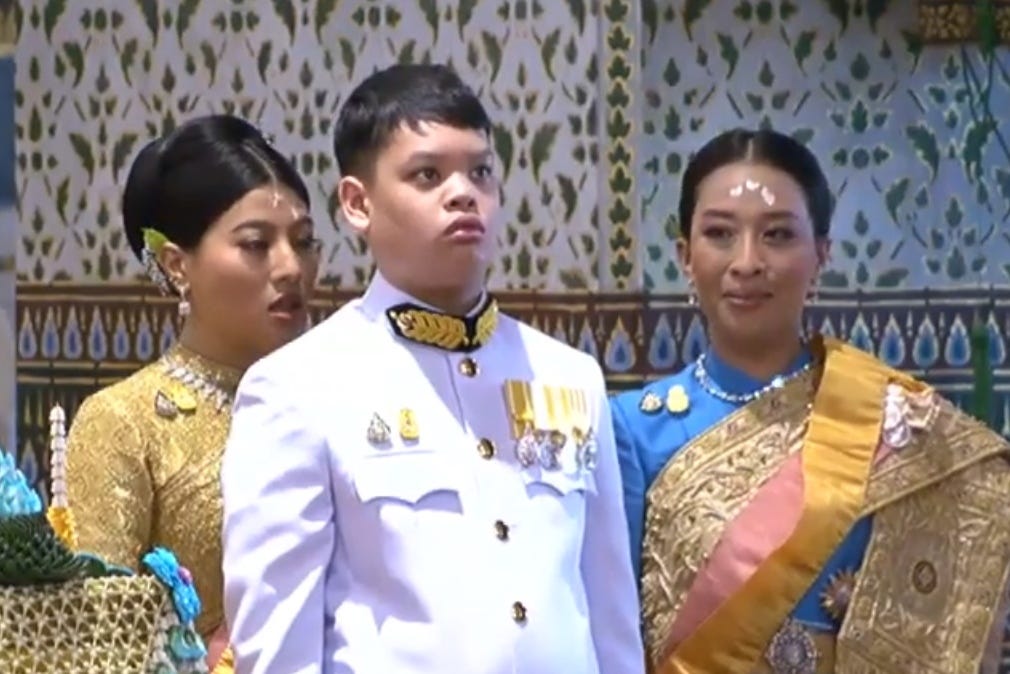
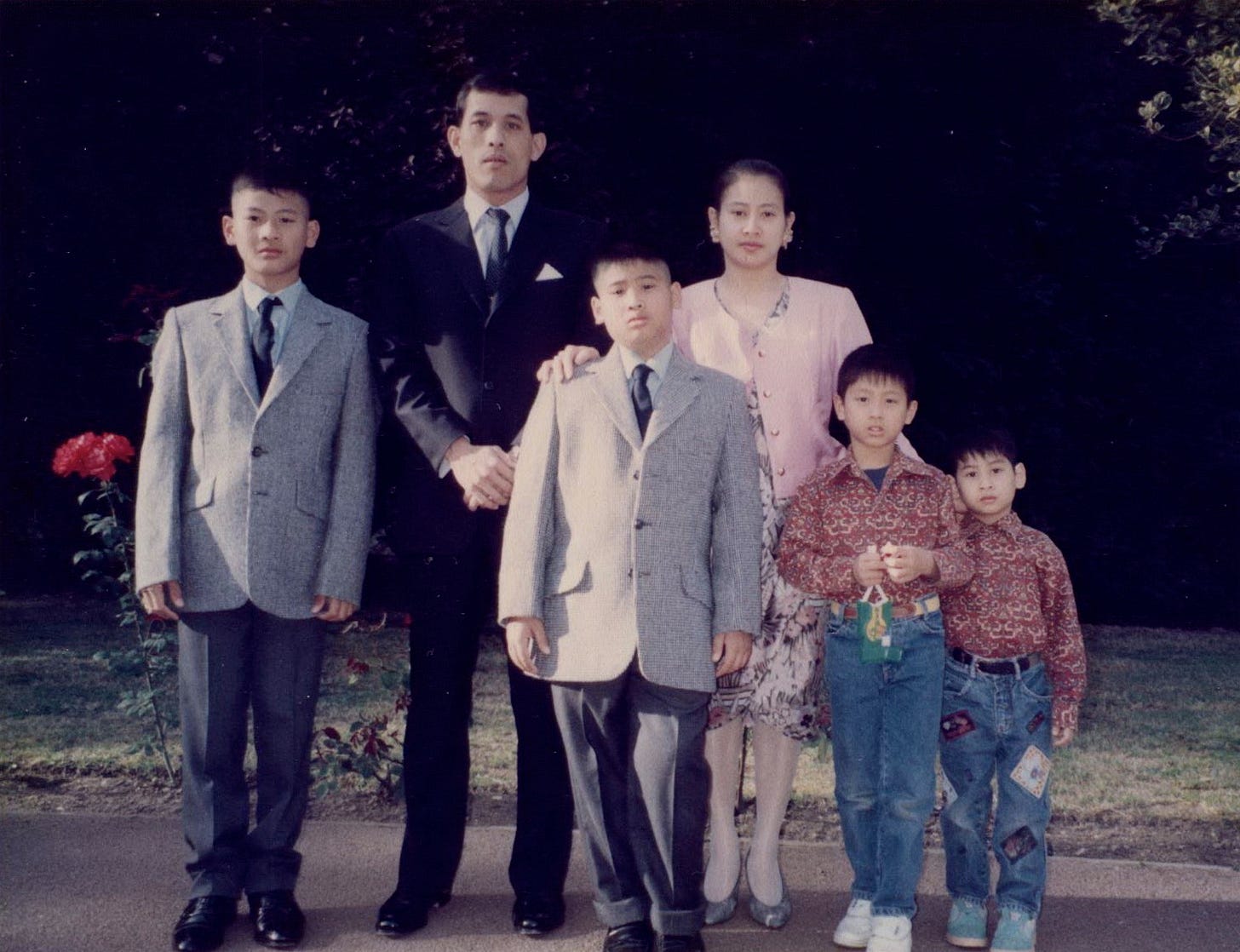
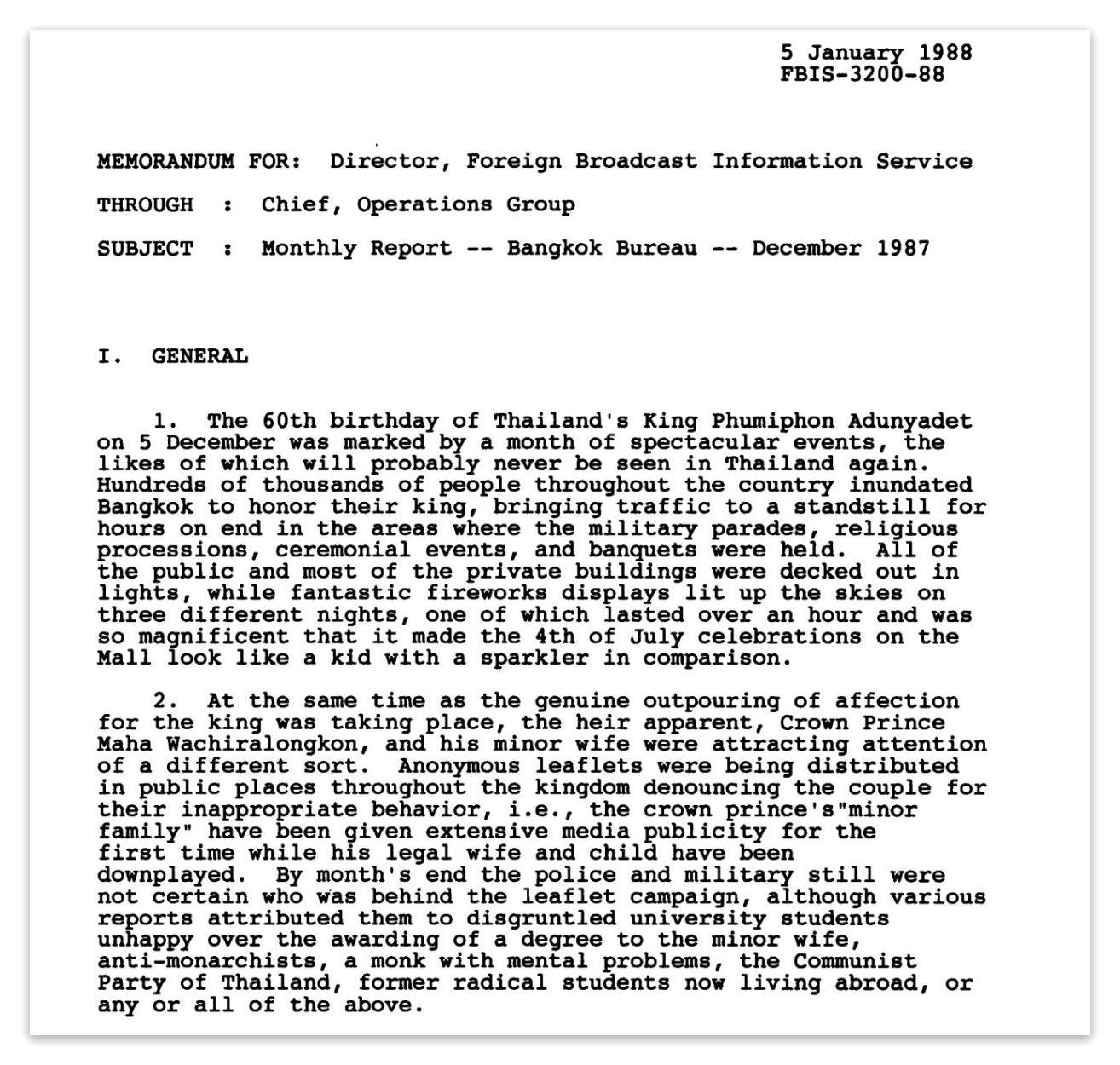
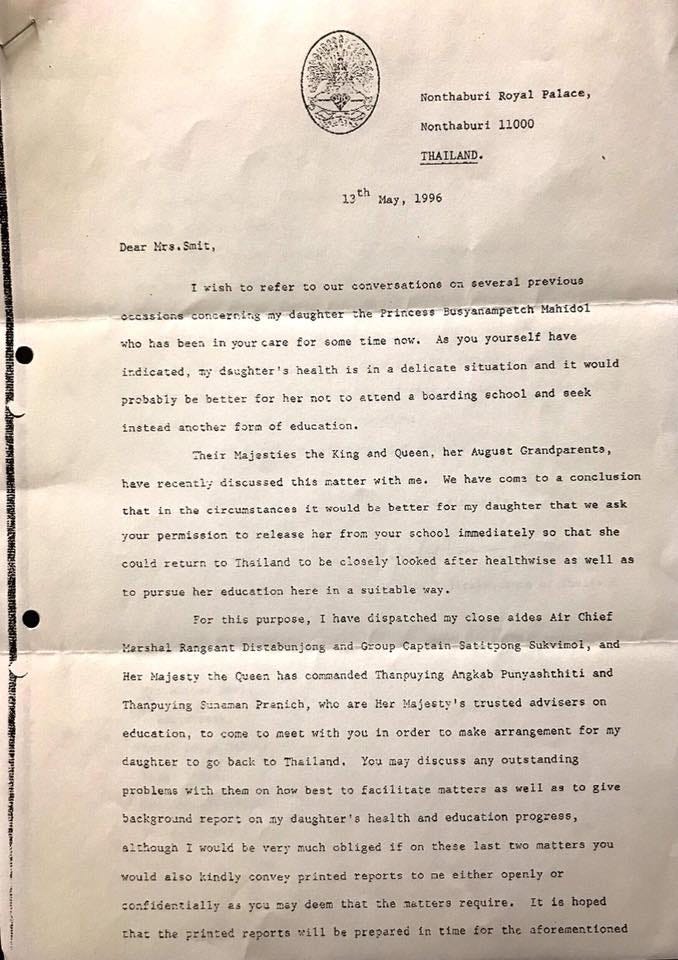
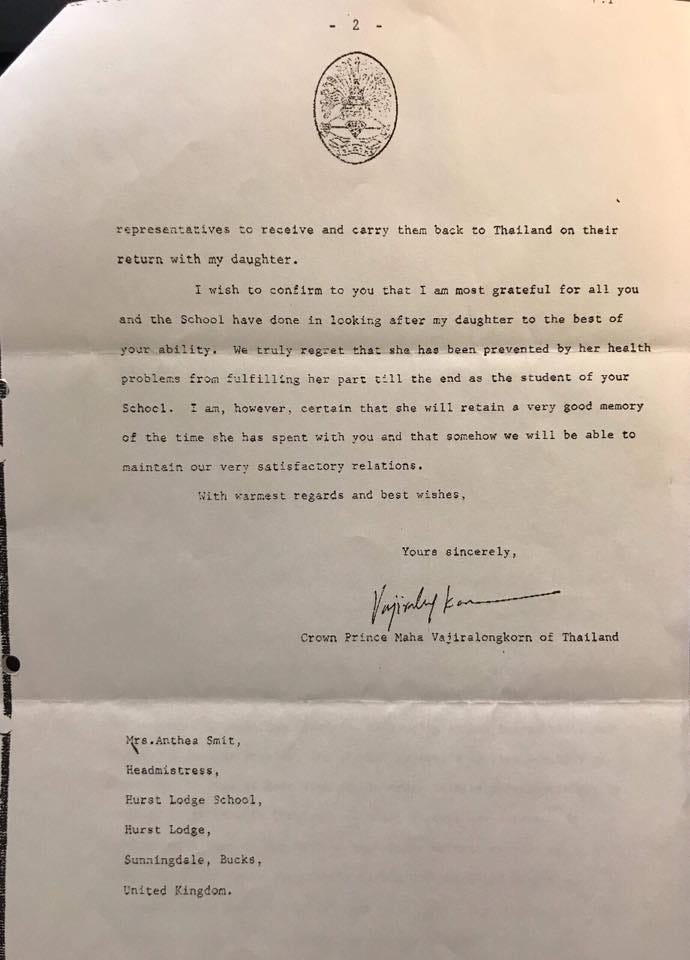
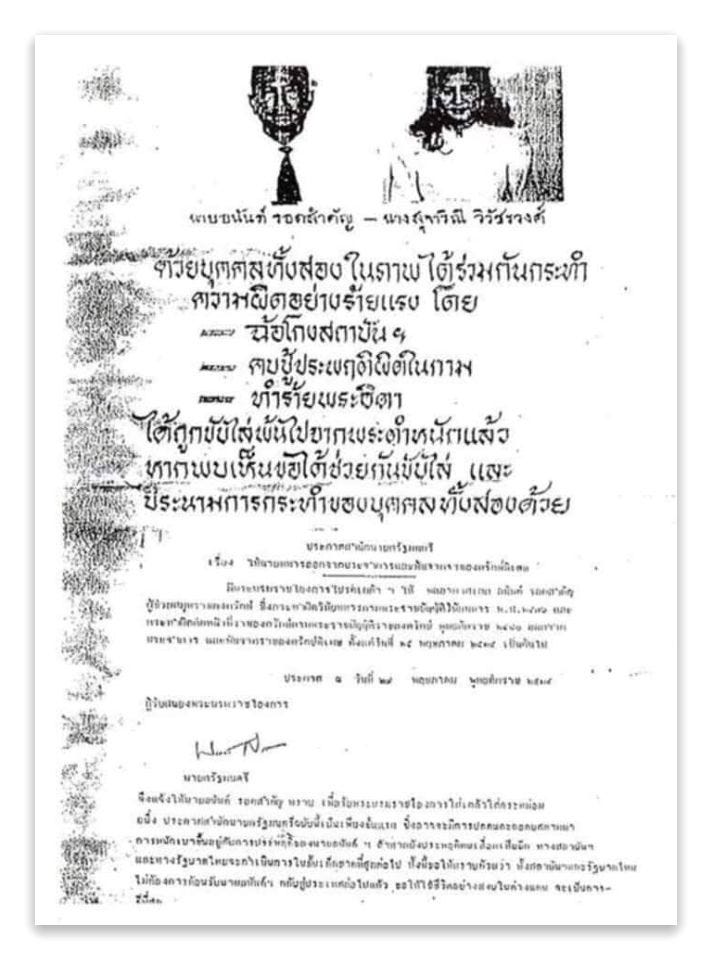
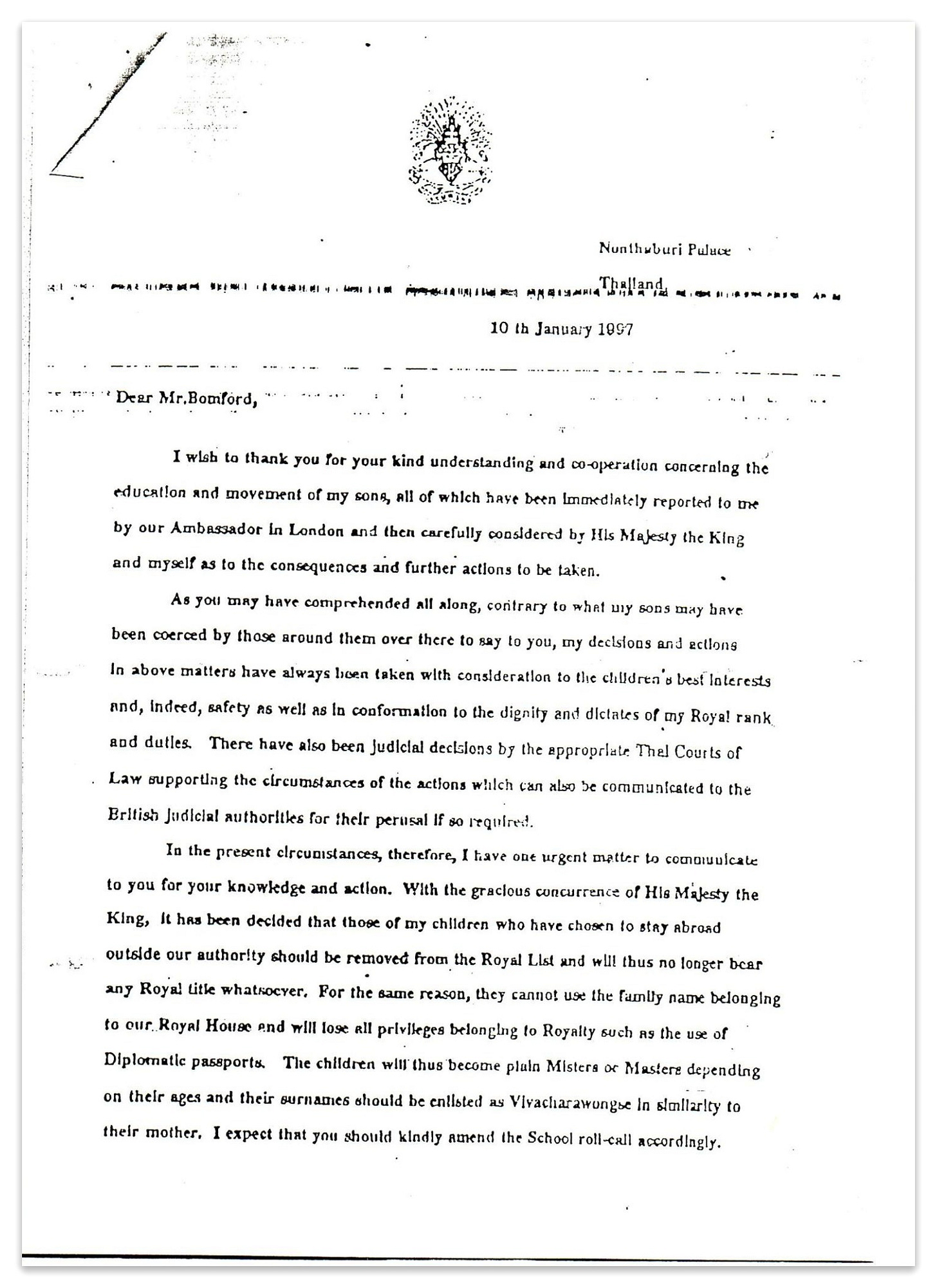
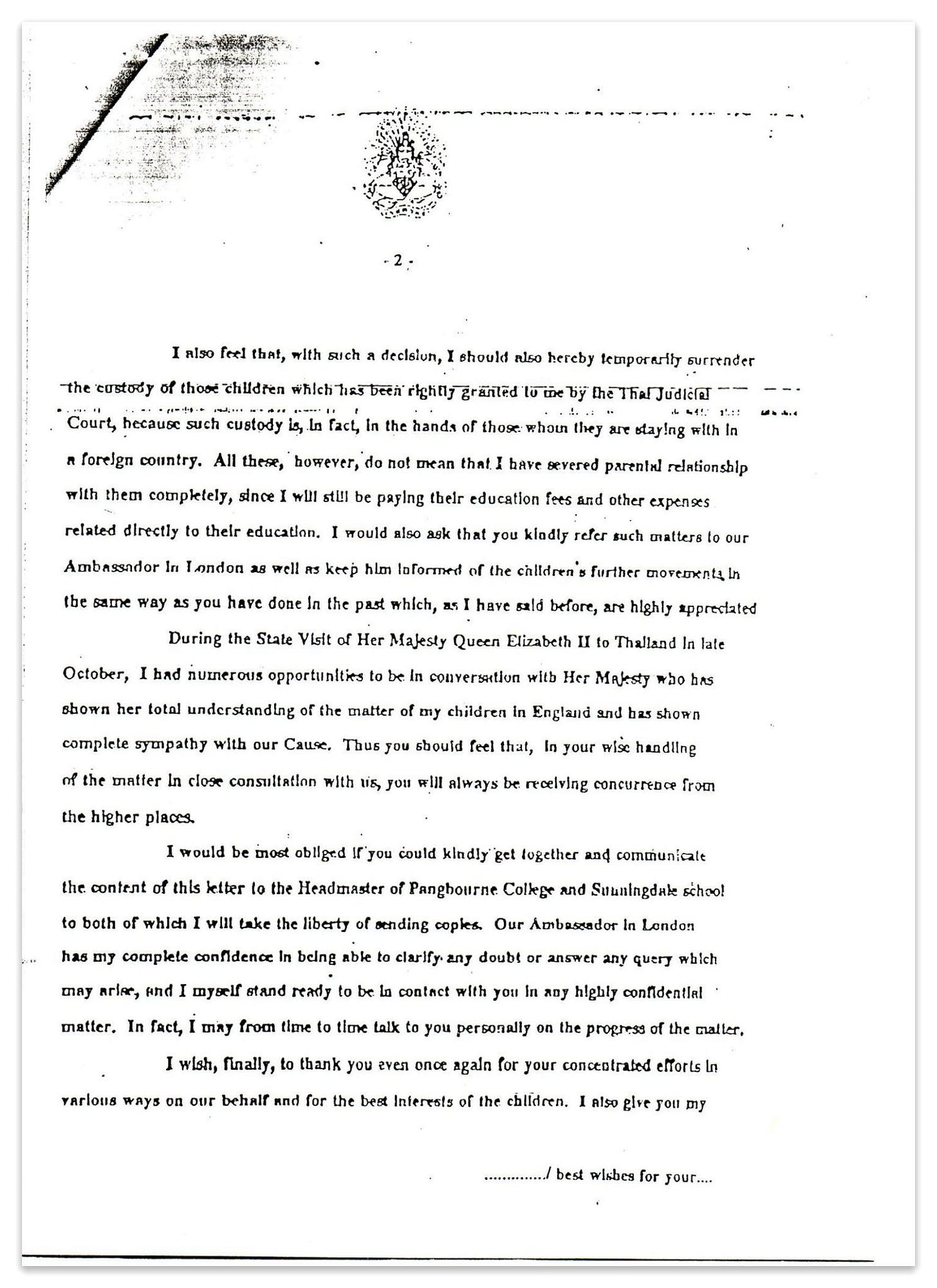
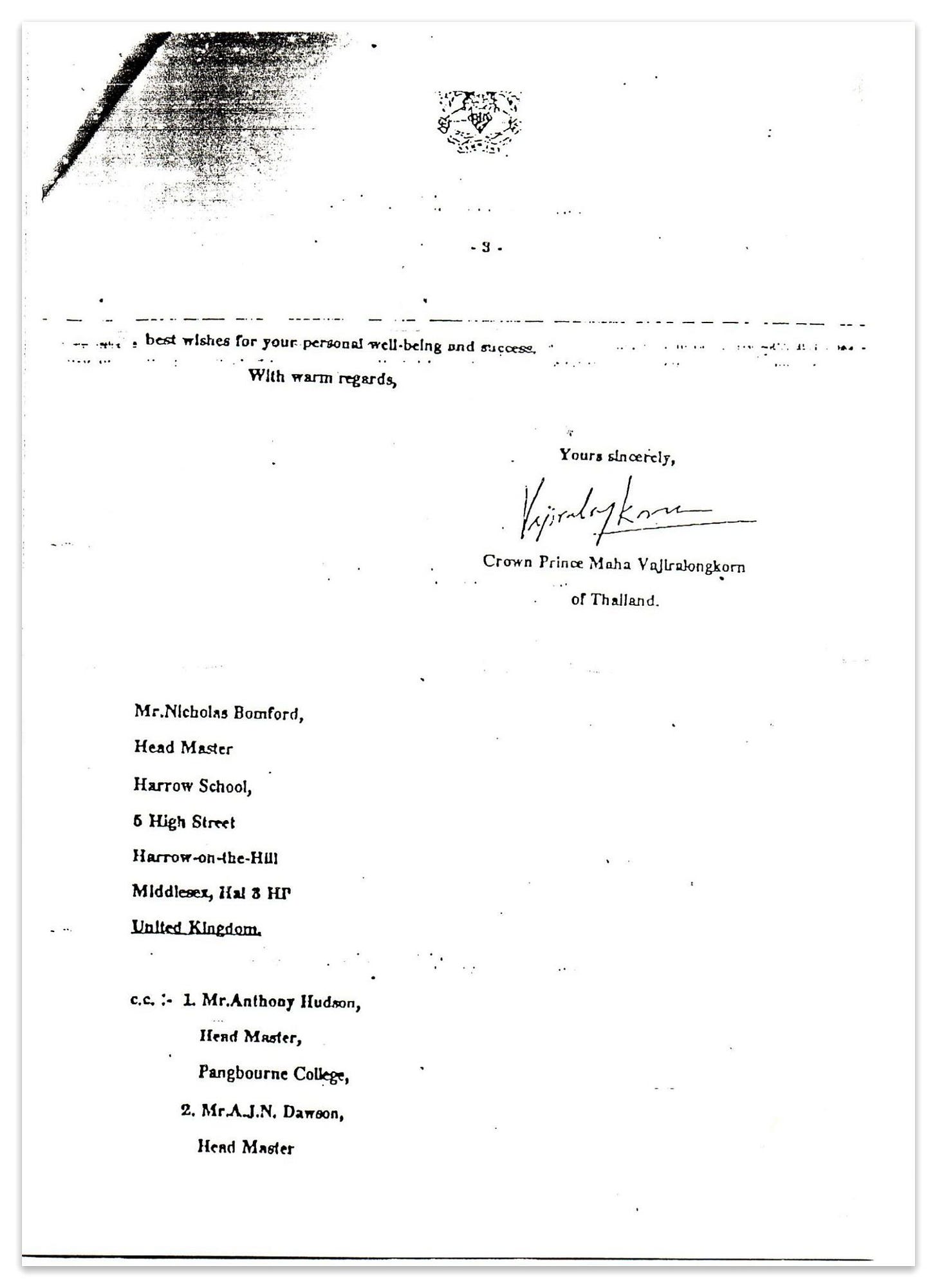
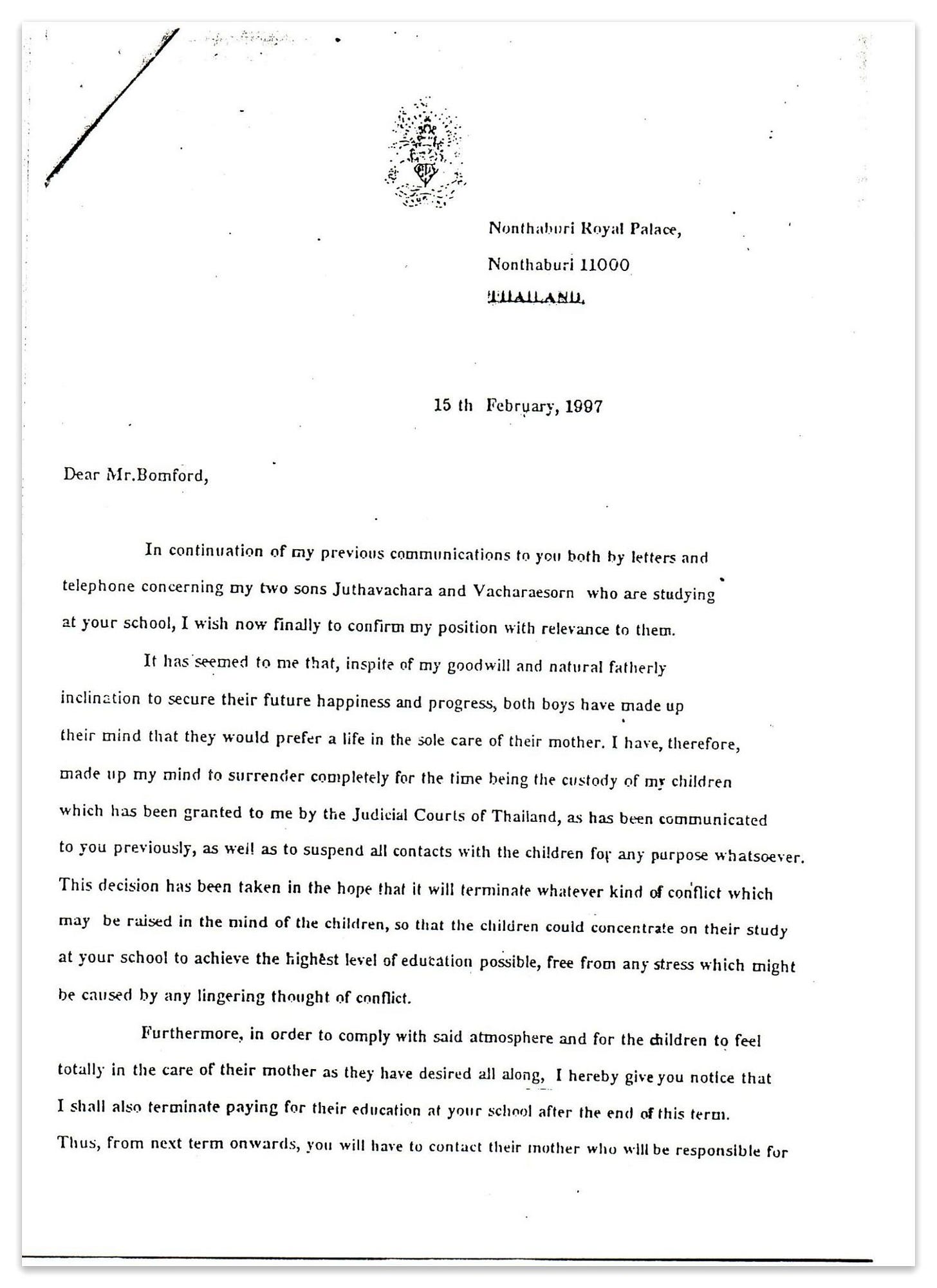

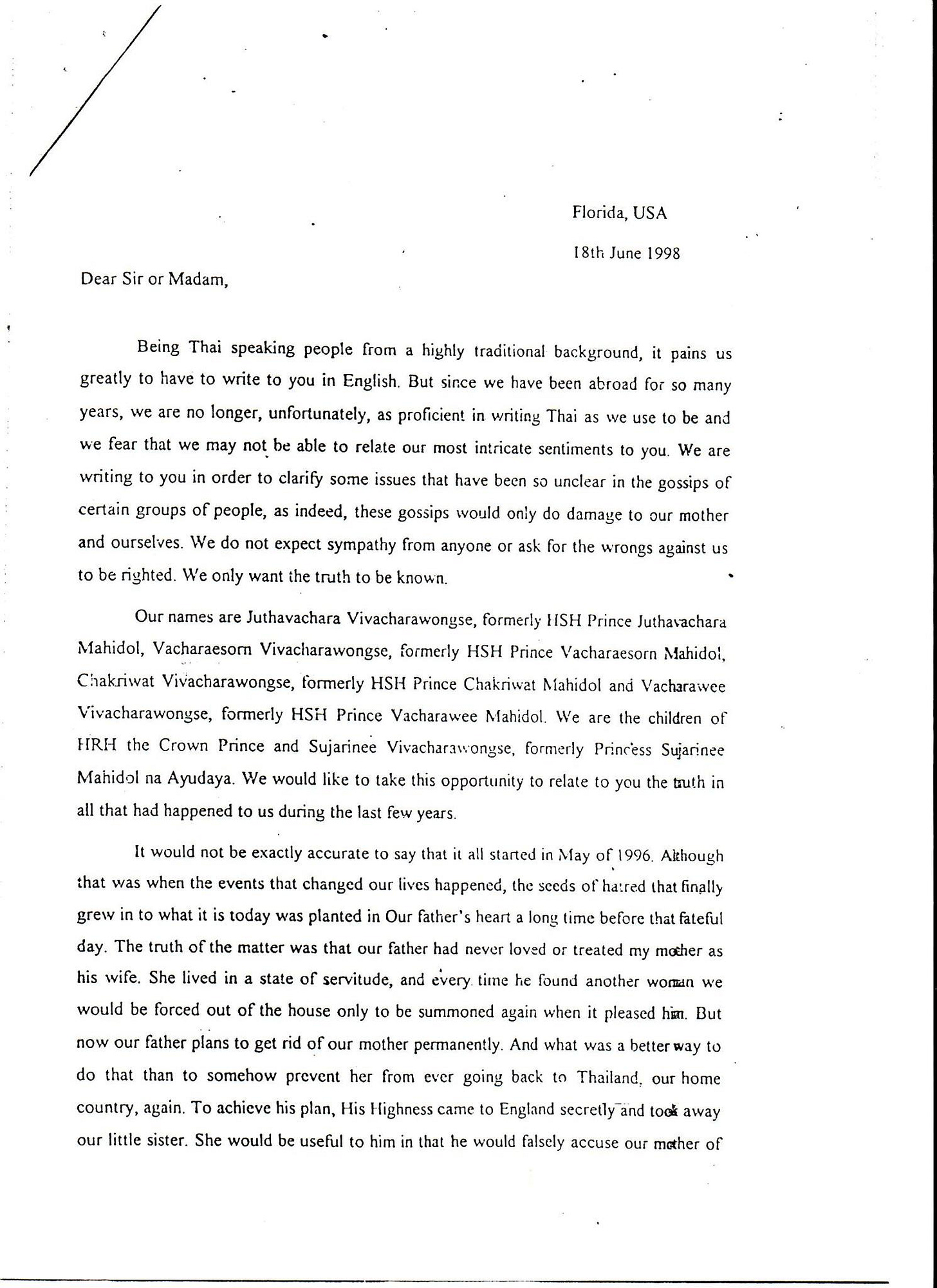
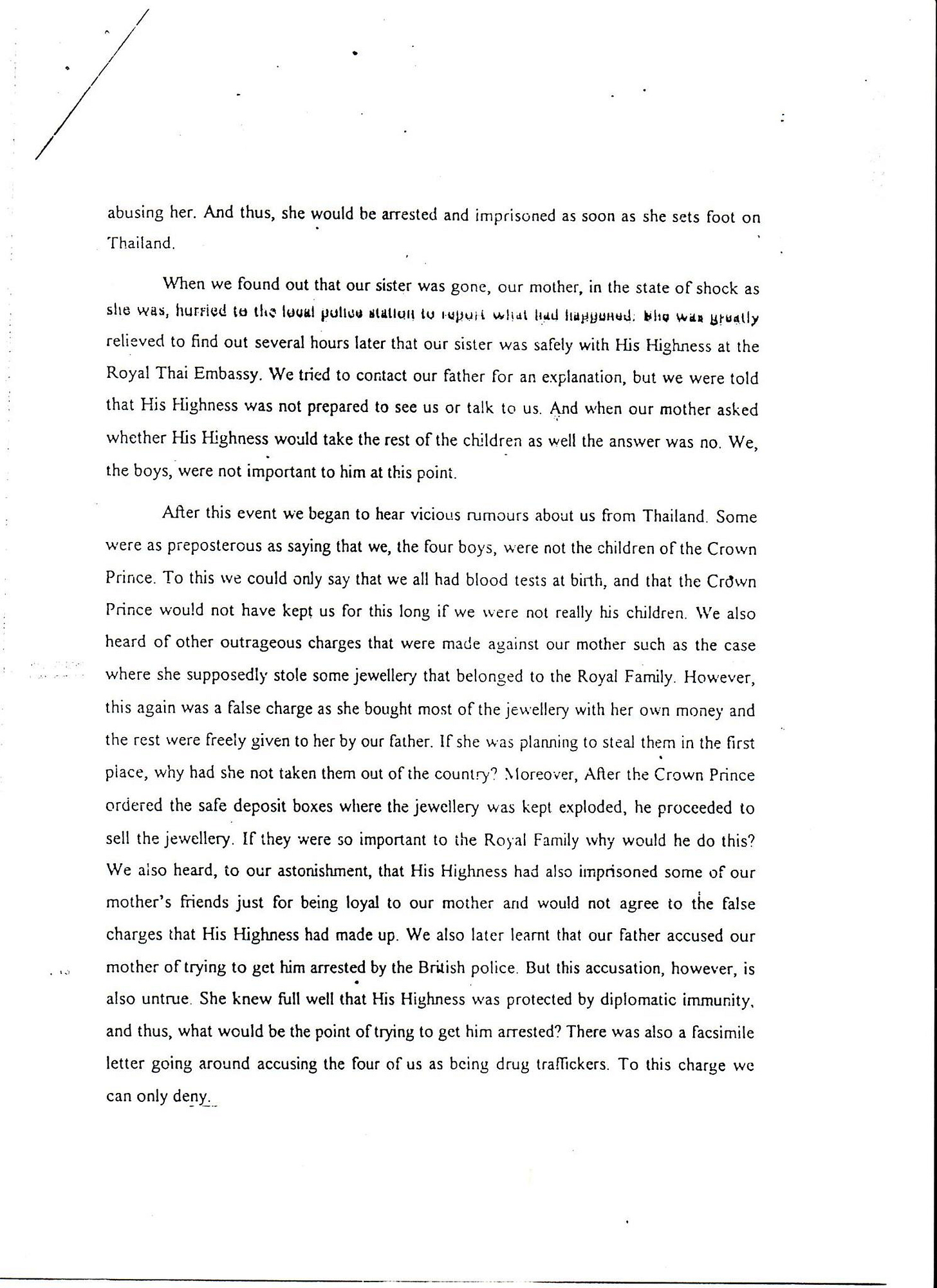
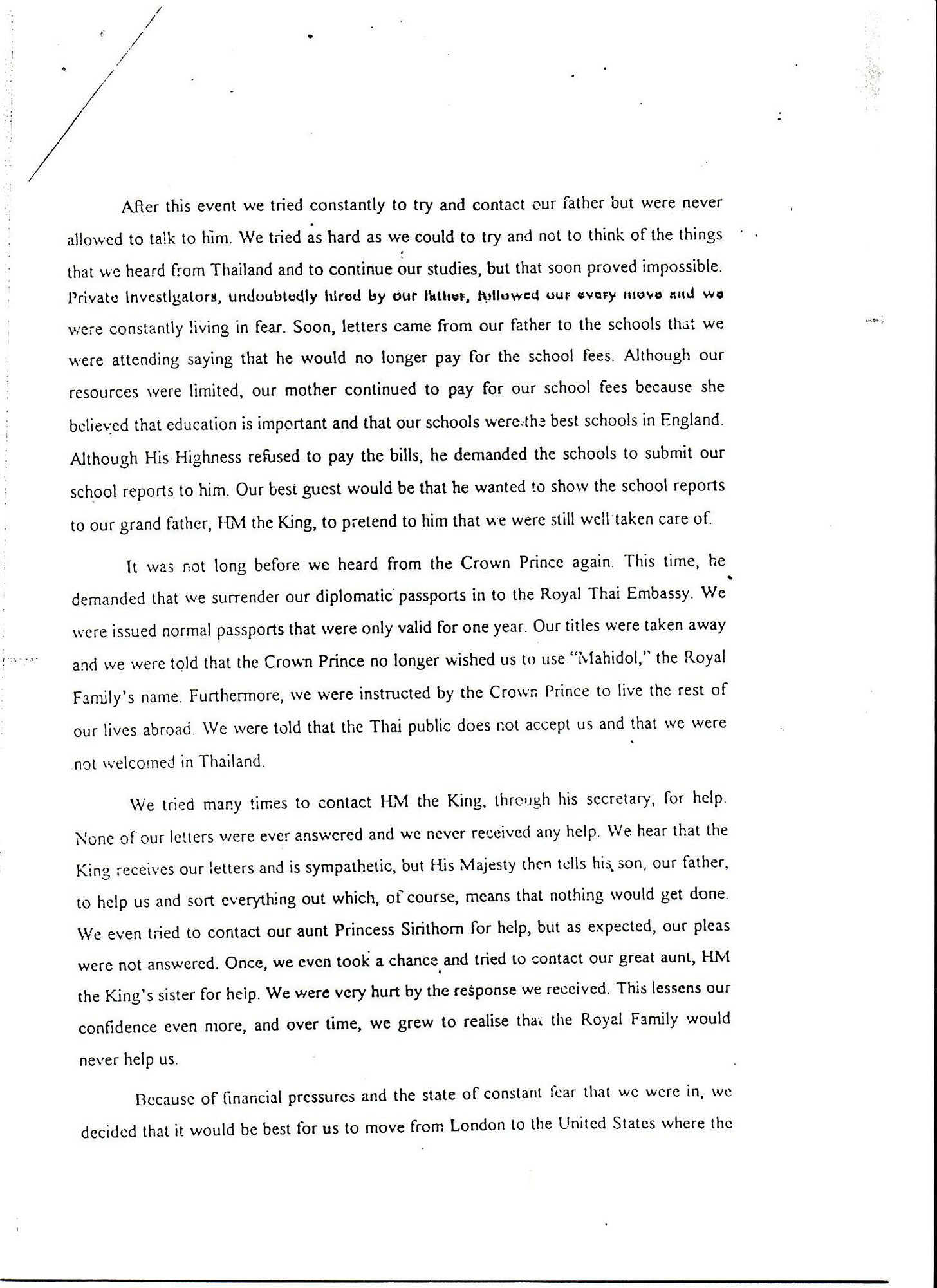
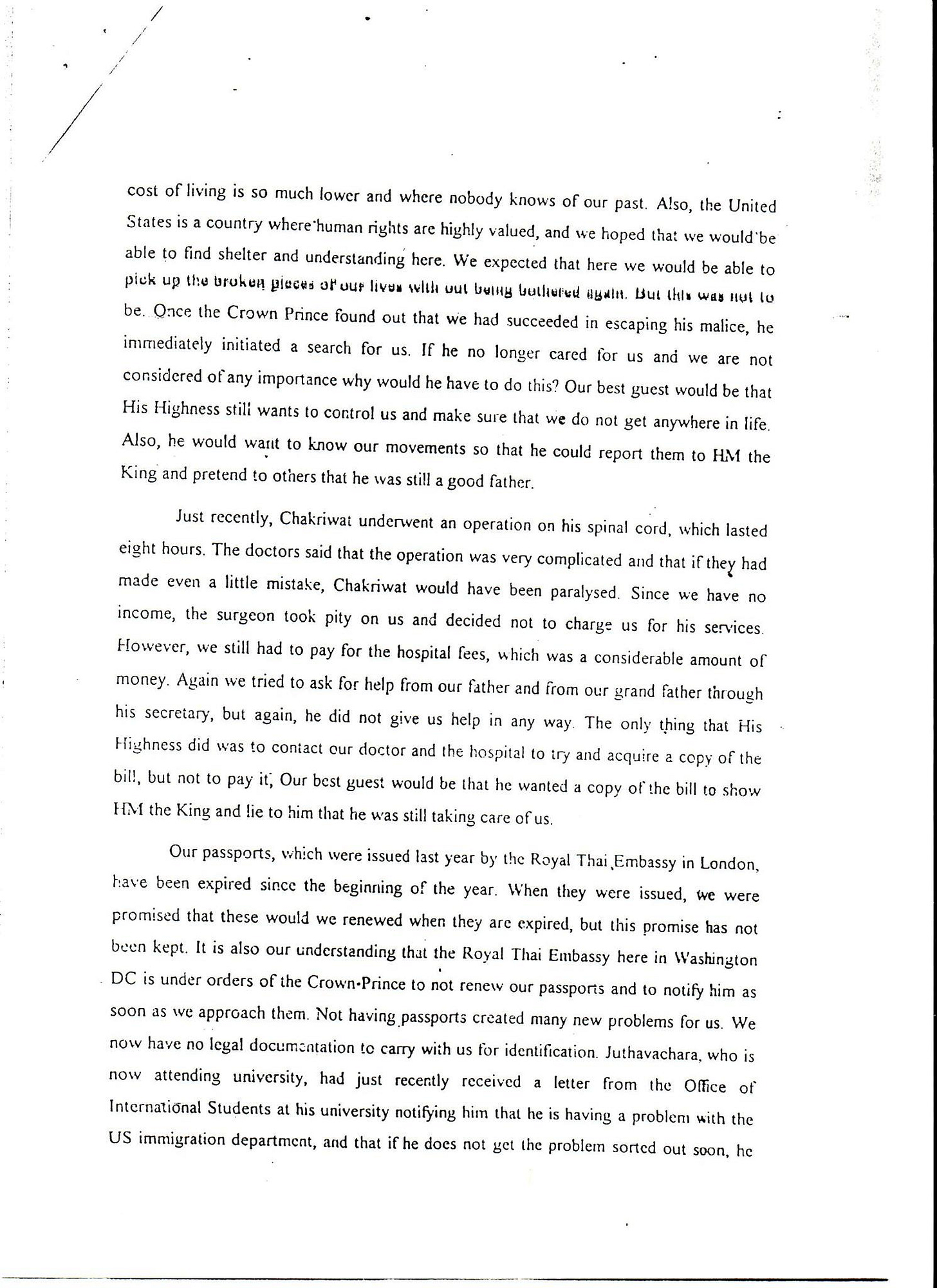
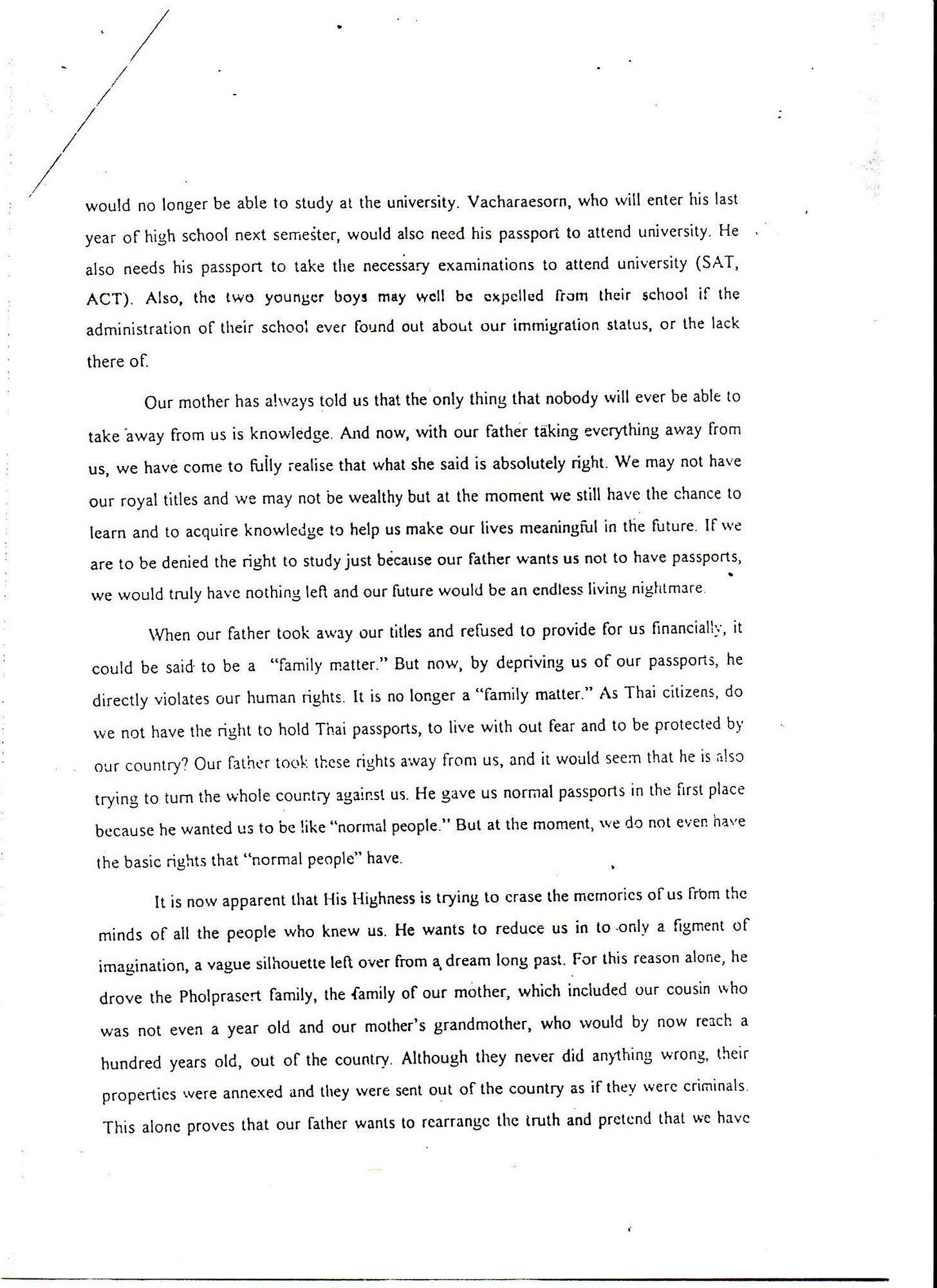
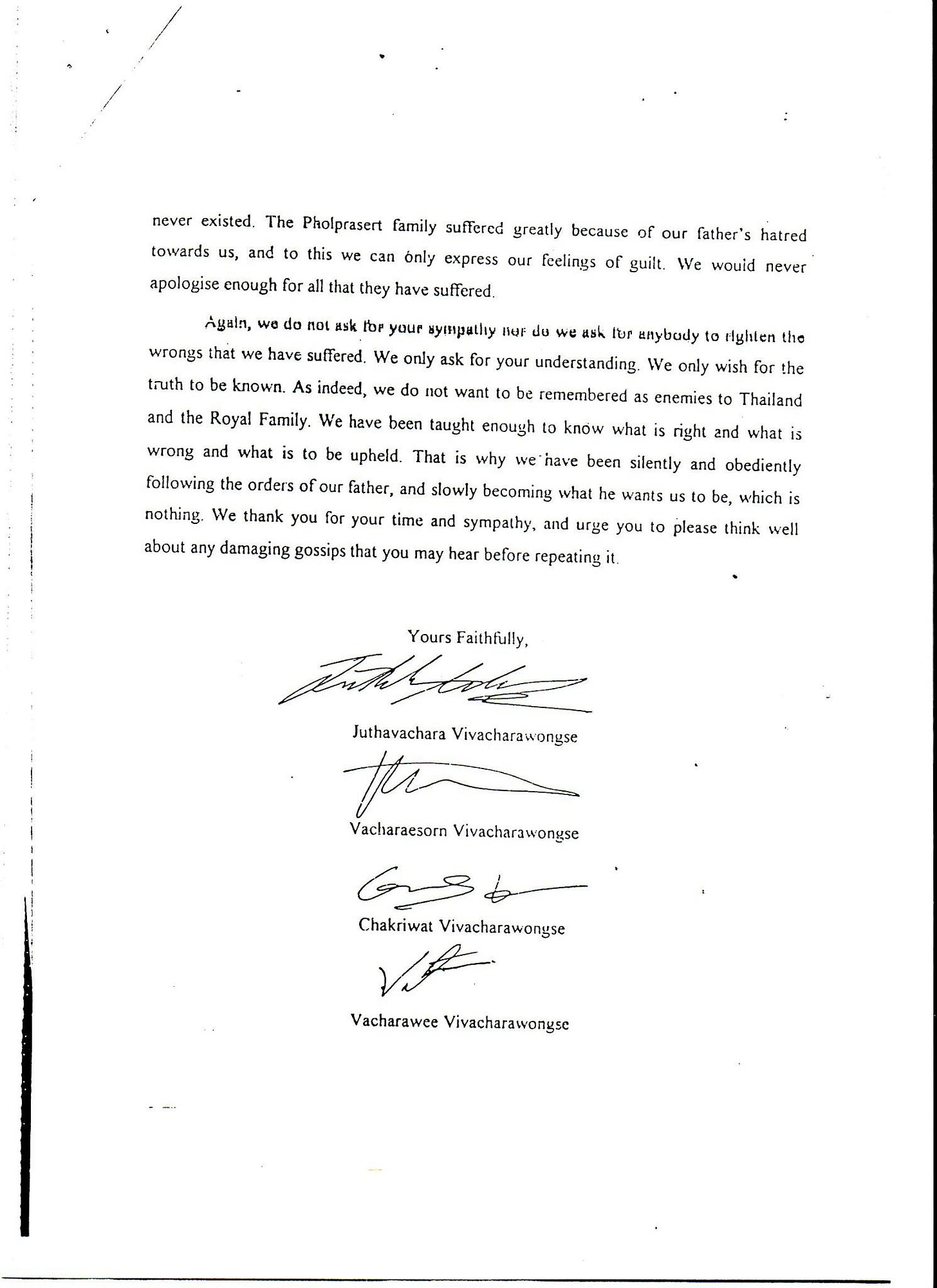
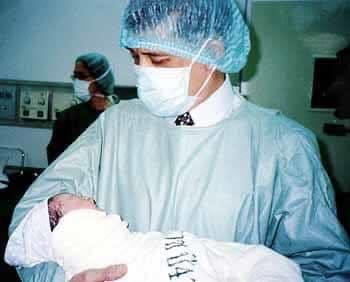
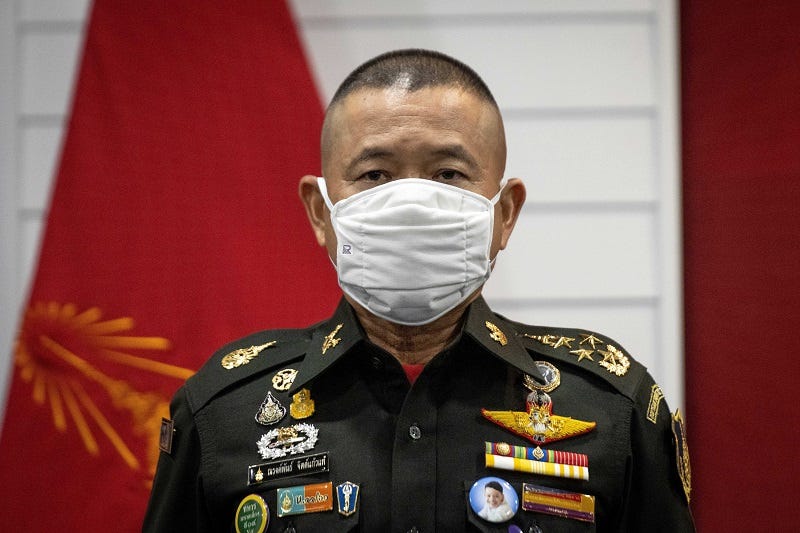
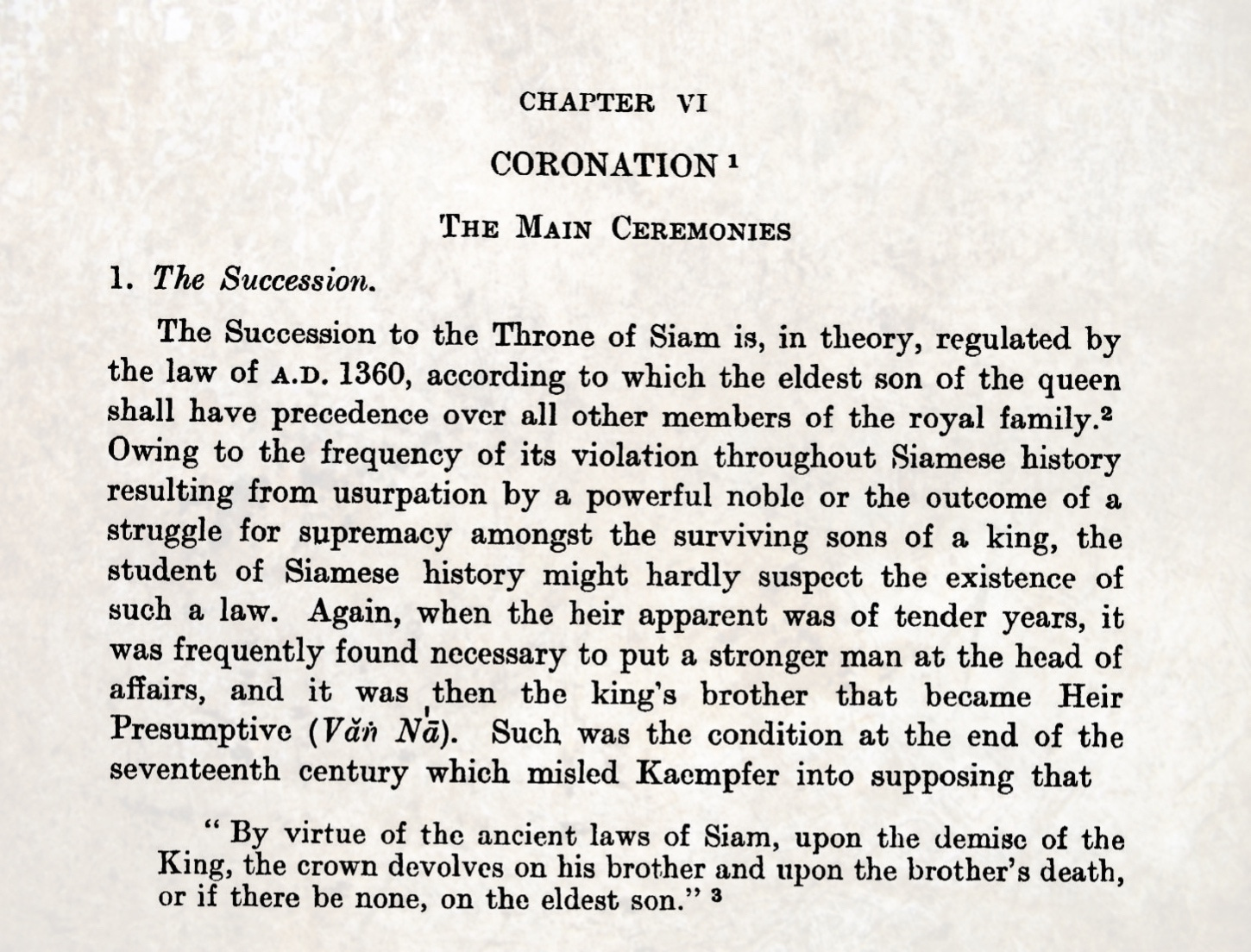

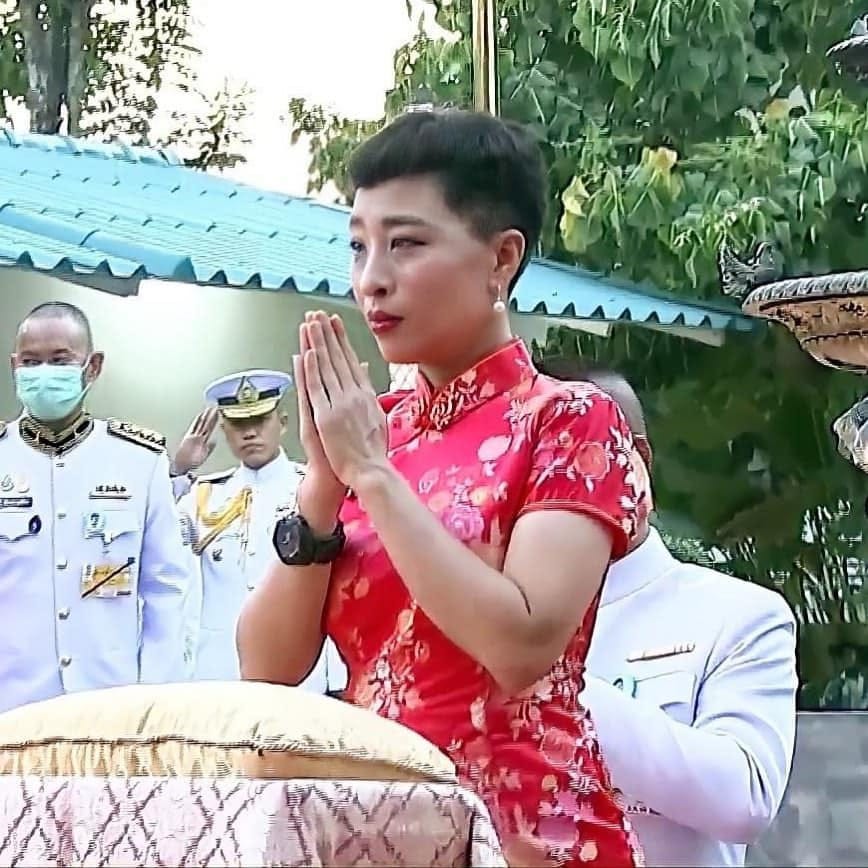
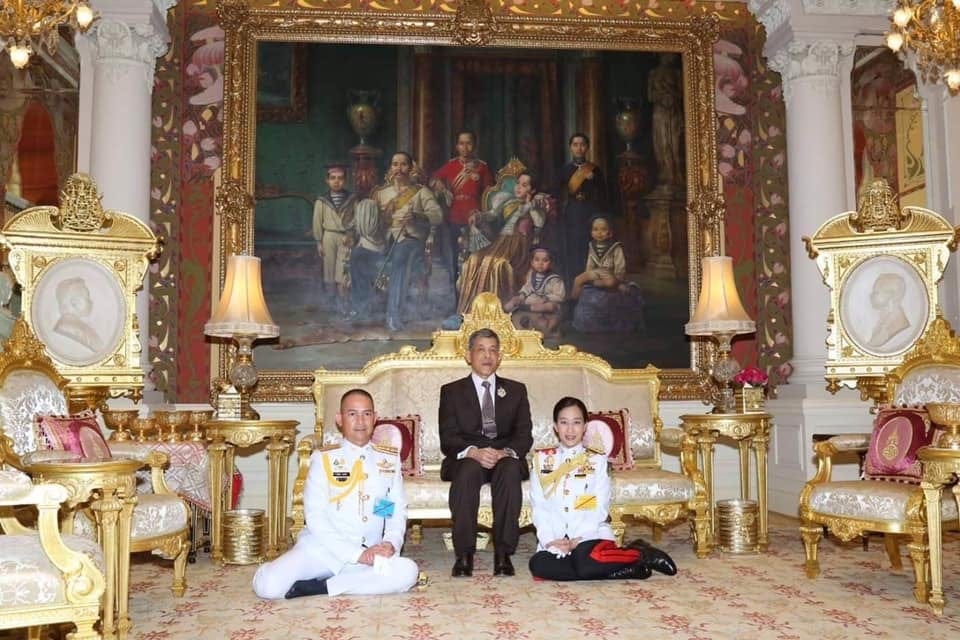
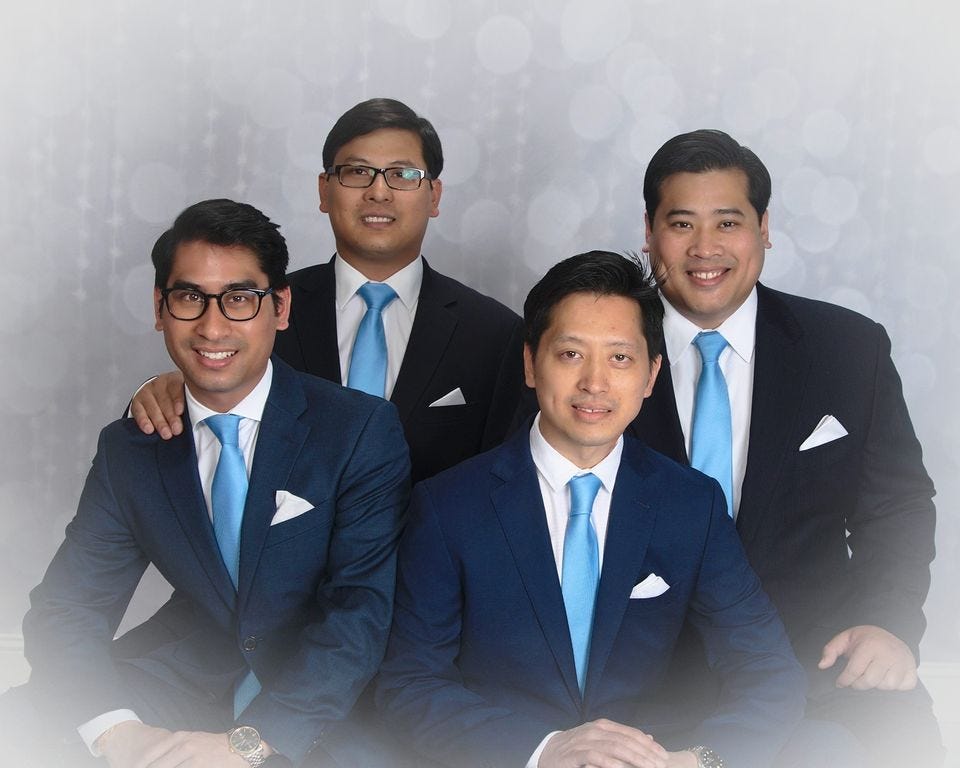
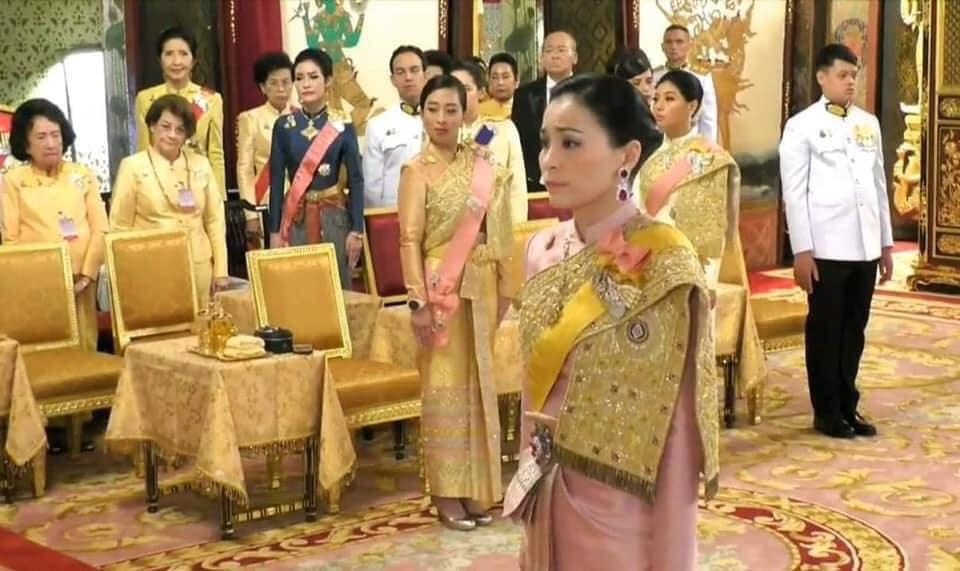
i think that virtually everybody hopes Vaji's passing comes sooner rather than later...
wasn't there some old prophecy that the line would stop at 10?